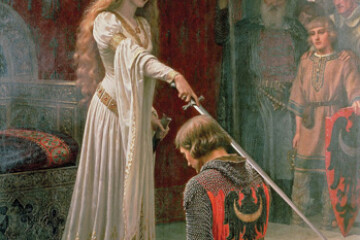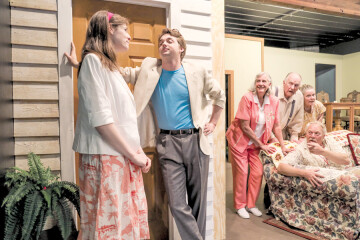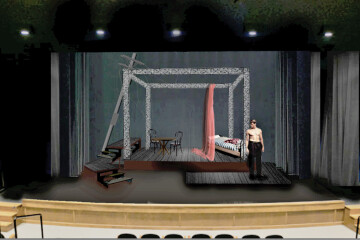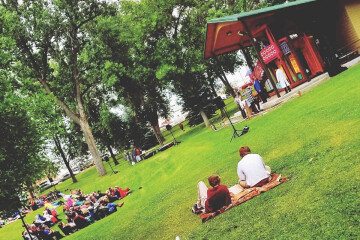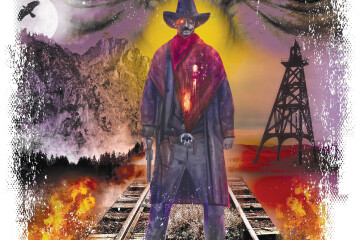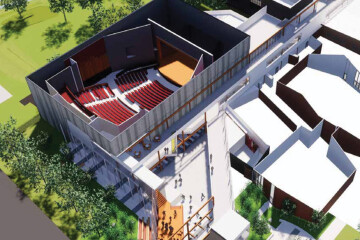Children’s Theater in Bozeman
Montana has a long history with drama, live theater, and child actors. Mary Ronan, a child who lived in Virginia City and Helena during the gold rush days of the 1860s and 1870s, was chosen to play the character of Lady Anne in a performance of Shakespeare’s Richard III. Mary recalled years later how important drama was to her, and how performing the role of Lady Anne was a defining moment for her life and education.
Today’s Bozeman kids involved in theater are continuing the tradition begun in pioneer days of Montana’s history. Bozeman currently has several organizations that provide opportunities for children to learn about drama, with different organizations focusing on different aspects of the art. The Ellen Theatre’s Tate Academy, Verge Children’s Theater, Montana Shakes!, Equinox, Yellowstone Theatre Project, and Kaleidoscope Theater all provide opportunities for children in Bozeman to learn stagecraft.
Among the first of the theater organizations in Bozeman to offer acting camps for children was Camp Equinox, founded in 1996. Equinox provides two sessions, four weeks per session, each summer for kids in grades 1 through 8. Equinox uses camp counselors to help direct the kids through improvisational acting, playwriting, mask-making, and puppetry. Children enjoy the guided outlets of creativity, culminating in live performances for adoring parents and family friends. Special emphasis is placed on learning and developing creativity, putting kids in a gentle spotlight, showcasing their developing personalities, and encouraging them to feel free to perform for others.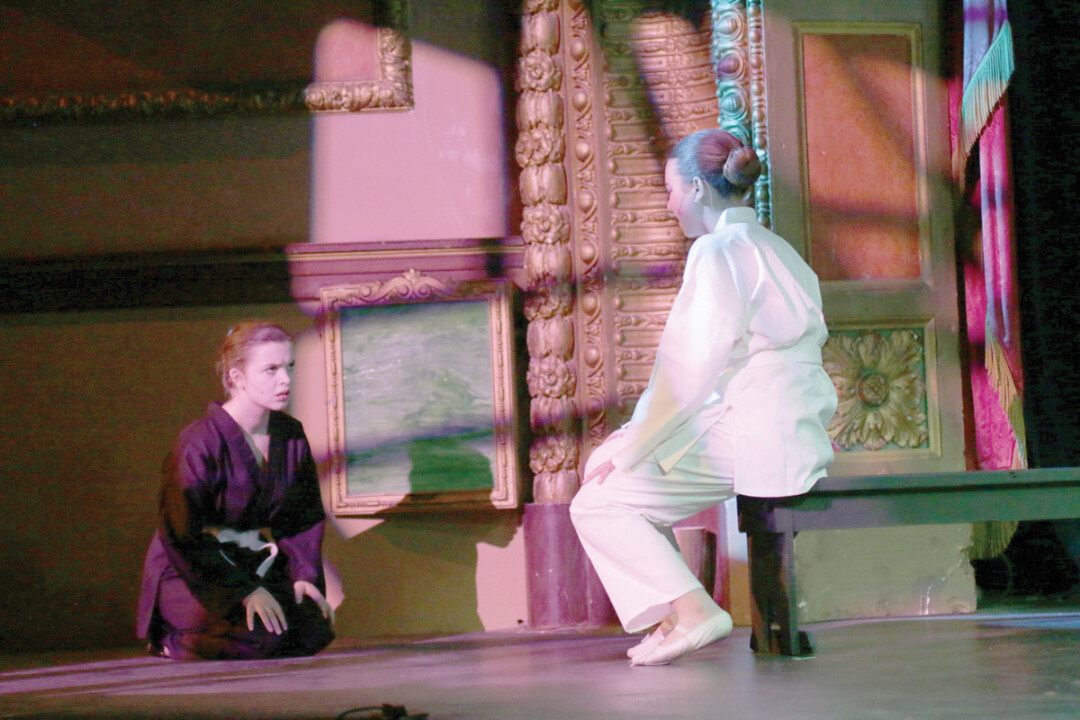
The Kaleidoscope Youth Theater began providing opportunities for community members to exercise their creative dramatic side with a production of The Victory Garden in 2000. Year-round camps and afterschool workshops have grown and expanded since then. Kaleidoscope Players perform from 4 to 5 shows per year; summer camps offer up to six sessions each summer, after school Club Kaleidoscope offers three eight-week sessions per school year, and an occasional “PIR Camp;” anyone who wishes to have a chance at working with some aspect of a live performance will have their chance through Kaleidoscope.
Verge Theater has always made education a priority in their mission. Recently they’ve expanded by bringing theater into Bozeman area schools. With a special focus on community building, improvisation, full-production experience, along with the idea that theater can provide a safe space for self-expression, the Verge gives kids the chance to fail while taking risks on stage. Being able to interact with like-minded people, children who go through the Verge programs quickly discover they have become part of another supportive community. Children and teenagers complete their educational sessions with productions on the Verge stage, open to the public.
Verge Education coordinator Jessie Sherman notes that for many children, their only exposure to theater comes when an acting company comes to their school. Verge tries to meet that need by going to the schools and providing theater in the classroom. Another important aspect of theater, according to Sherman, is the mixing of the ages in theater: “For many children, they go to school where they interact only with their classmates. In theater programs they usually are part of different age groups that work closely together, giving children the experience of working with built-in mentors and role models.”
Shakespeare in the Parks expanded its outreach programs in 2008 by adding Montana Shakes!, which brings interactive theater to elementary schools. Shakes! emphasizes themes of Shakespeare, how stories are told, and the power of words. This interactive theater program comes to elementary schools with three to four professional actors who put on theatrical workshops with elementary children, encouraging kids to put on costumes, engage with characters, and become part of the performances. Special emphasis is given to language. Veteran Shakes! Education Director Stephanie Chavala says, “These young kids grasp essential meanings of language, including Shakespearean language, faster than adults.” Children come out of a Shakes! workshop eager to try out their language skills and newly-stretched imaginations.
The Tate Academy provides children from 3rd through 12th grades with the chance to explore their thoughts and ideas, what it means to be an actor, to take on a character, and to bring that character to life on the stage. Tate teachers focus on process, leading kids through all the steps to create professional quality theater. Mark Kuntz, one of the Tate Academy teachers, notes that Tate likes to use the classics, especially Shakespeare, as a teaching vehicle for the children. He says, “It’s so much fun to see the kids work through a hard part in Shakespeare, and then suddenly see the light come on” as they gain an understanding of the power of the language and the power of the stage. Especially thrilling to the kids who are part of the Tate program is the chance to offer performances for the general public in The Ellen Theatre on a proscenium stage with full curtains, lights, and to feel the history of this elegant old theater, built in 1919. Shakespeare’s Hamlet was very well received when the Tate teenagers put on a performance in January by a talented cast of young actors directed by Kuntz.
The Yellowstone Theological Institute of Bozeman sponsors a student play festival for youth between 3rd and 12th grades. Participants can develop and perform their own original pieces, learn acting, and gain experience in directing and stage managing performances.
While it may seem odd that Yellowstone Theological Institute sponsors drama and acting classes, President Jay Smith notes that drama speaks to the human need for understanding, empathy with suffering, heartbreak, hurt, and sadness. He comments that “existential narratives of the Bible or Greek tragedy are the genesis of most of the oldest dramas known to humankind.” Smith points out that drama helps us understand and cope with the human condition. The Yellowstone Theological Institute wants to use drama to help children and young adults find ways to come to terms with the emotions and experiences of life through the beauty, joy, frivolity, deviousness, sadness and laughter that can come with live theater.
Professional actors Kristin Hammargren and Miles Duffey lead the week-long workshop. Yellowstone Theatre Project Spring Break runs from March 18-22, 2019. Hammargren, the Director of the Yellowstone Theatre Project, is eager to work with the students who attend the Spring Break Camp. Hammargren describes her drama classroom as more laboratory than classroom, like a science laboratory that explores different inputs and processes to see how things turn out. The goal of her classrooms is to provide a place and community where students can safely experiment and fail, as failure is expected if the actors are experimenting with new ideas. But the safety of these drama laboratories is built in with the ensembles. Hammargren trusts that the students “will take their ability to create, communicate, and nurture out of the theatre classroom and into their lives.”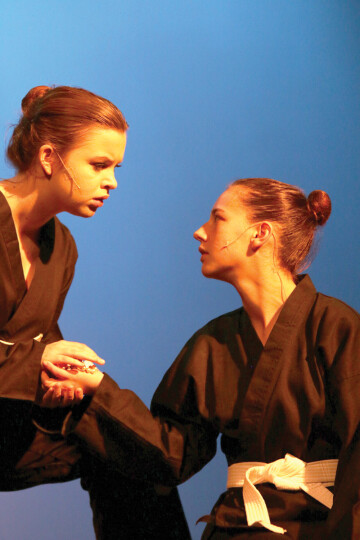
Just as Mary Ronan in 1868 learned how important drama and acting was to her, Hugh Burroughs and Maya Dickerson, both teenage actors with experience from Equinox, Verge, and the Tate Academy, have gained tremendous experience from their times in the children’s theater organizations of Bozeman. Last October Hugh performed the role of Andrea in Bozeman Actors Theatre’s production of Life of Galileo. Maya performed in Intermountain Opera’s A Little Night Music, and Bozeman Actors Theatre’s Middletown. They performed together on stage in the teen theater production at the Verge of Emma, as well as the Tate Academy’s production of Two Gentlemen of Verona. Like Mary Ronan from 150 years ago, Hugh and Maya find performing drama life-changing.
Watching the productions from organizations such as the Tate Academy, The Verge, and the Kaleidoscope is to witness professional-quality theater performed by young people who have gained the advantage of self-confidence, acting process, empathy, self-awareness, and responsibility, along with a sense of teamwork and community.
For upcoming productions from these companies, as well as more information about enrolling in classes, please contact the organizations directly:
Tate Academy: www.tateacademy.org/contact or call 406.585.6918
Verge Theater: www.vergetheater.com/overview-education/ or call 406.587.0737
Kaleidoscope Theater: www.kytbozeman.org/ or call 406.587.3642
Camp Equinox: www.campequinox.com/ or call 406.522.7623
Yellowstone Theatre Project: www.yellowstonetheology.org/theatre/ or call 406.404.1600

